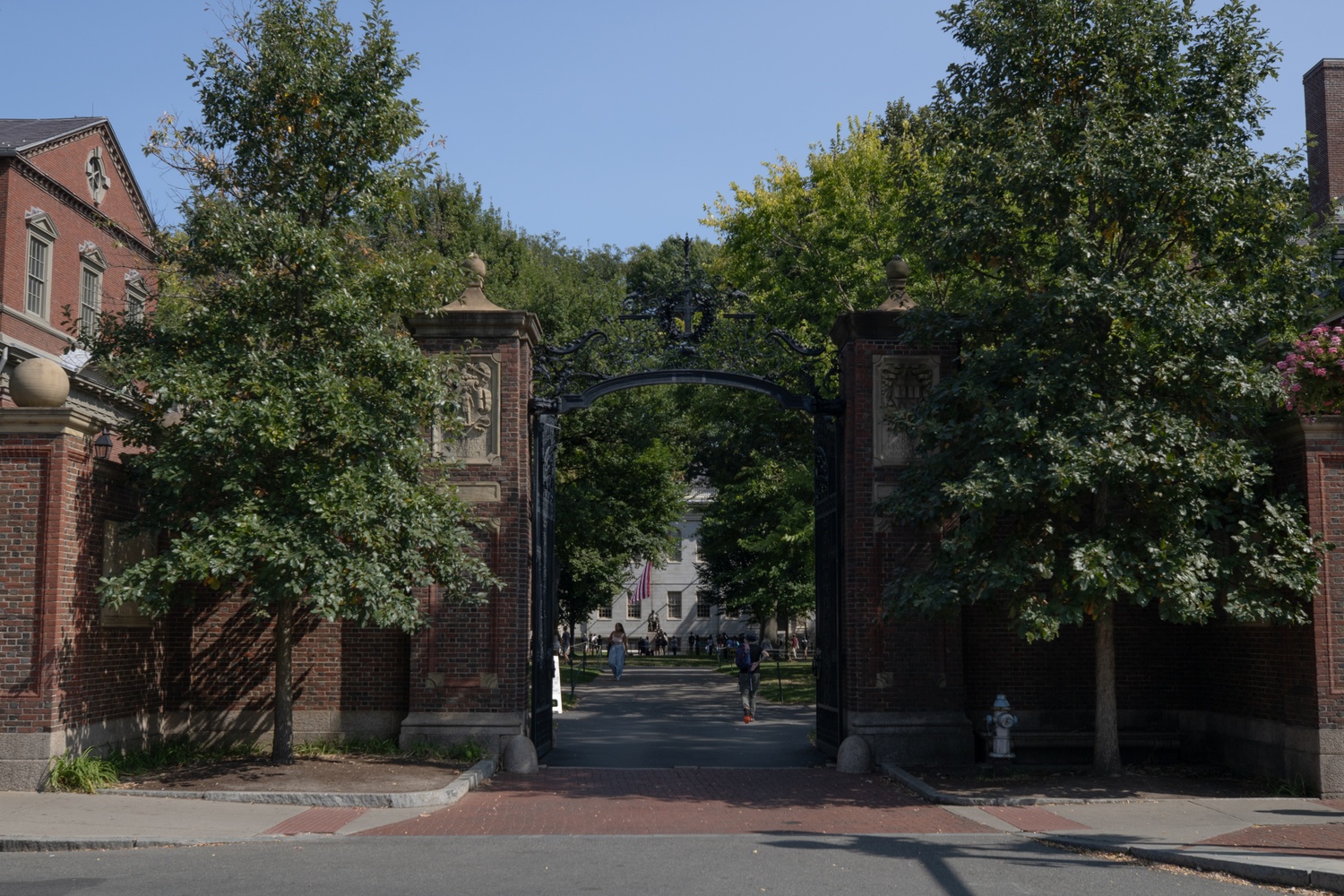
News
Summers Will Not Finish Semester of Teaching as Harvard Investigates Epstein Ties

News
Harvard College Students Report Favoring Divestment from Israel in HUA Survey

News
‘He Should Resign’: Harvard Undergrads Take Hard Line Against Summers Over Epstein Scandal

News
Harvard To Launch New Investigation Into Epstein’s Ties to Summers, Other University Affiliates

News
Harvard Students To Vote on Divestment From Israel in Inaugural HUA Election Survey
We Should Leave Harvard More Often
I leave campus as much as I possibly can. You should too.
The “Harvard Bubble” is a well documented phenomenon — students rarely venture more than a mile from the Yard. Within that bubble, we subject ourselves to petty social pressures that evolve into larger sources of stress, obsessively fixate on academic performance, and become out-of-touch with the outside world.
The only way to pop that bubble is to leave campus — or at least Harvard Square — to remind yourself of the bigger picture outside of school.
I don’t dislike Harvard — to the contrary, I love it here. Part of why I leave as much as possible is because of how much the surrounding area has to offer as well. Boston is one of the oldest major cities in the United States, and boasts an endless cascade of opportunities for exploration and connection. The times I’ve left campus, I fondly remember the experiences I gained: Reading a book to the soundtrack of old Italian men loudly conversing over espressos in the North End, the childlike whimsy of a full-scale Boston Tea Party re-enactment, or seeing a large swan on a spring day at the Alewife Brook Reservation.
Leaving campus is not solely about the change in physical environment — it’s also about social connection. Despite recent improvements to campus mental health, there’s no question Generation Z is still isolated. In 2024, one survey determined that 80 percent of our generation experienced loneliness in the last year, a much higher proportion than baby boomers.
Even when we Harvard students occasionally step away from our dorm desks, we still tend to stay within the bounds of our campus enclave. Getting off campus and talking to non-Harvard students can remind us that problem sets and papers are not life-or-death, even when they might feel like it.
Exiting the University’s gates is about more than ourselves — it can also help mend the wound between Harvard and surrounding communities. As one of the major landowners in Boston, our University has played a role in the gentrification of nearby neighborhoods and the rising cost of rent. While some progress has been made in Harvard-Boston relations, for many residents, a negative perception of the University remains.
During time spent in Cambridge and Boston, I’ve had several heartwarming interactions with long-term residents. Earlier this month, a comment I made about a woman’s shirt sparked a conversation about climate policy in Boston — by the end, we exchanged contact information.
Individual interactions obviously won’t remedy Harvard’s fraught relationship with the community at large. But speaking with long-term Boston-metro residents should still remind us of our privileged position as Harvard students, and why we should push our University to be better to its neighbors.
Of course, there are a number of legitimate reasons why students may hesitate to depart from central campus. When talking to friends of mine who rarely leave during the semester, they often mention heavy courseloads, a dislike of the Massachusetts Bay Transit Authority, or sheer burnout.
I get it. The MBTA is an admittedly slow affair and the buses are not that much help, either. However, the beauty of Cambridge and Boston is that they are walkable cities — there are many pockets that one can access by foot in just thirty minutes or less: Central Square, Porter Square, Cambridgeport, Allston, and so much more.
So if courseload is a problem, take the work with you to a Cambridge café — Andala Coffee House is a personal favorite. If burnout or fear of travelling alone is an issue, classes, clubs, and houses offer routine semester outings off-campus.
So what are you waiting for? Stop reading this and go walk, Bluebike, or take the T for a brief off-campus getaway. You’ll be better because of it in the long run.
Jasmine N. Wynn ’27, an Associate Editorial editor, is a History concentrator in Winthrop House.
Want to keep up with breaking news? Subscribe to our email newsletter.

